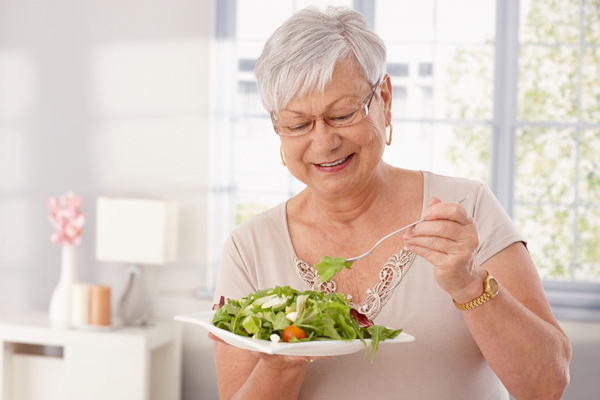The elderly are split into three – People between 60-75 years as young old, people between 75-85 years as old and those who are above 85+ years old are the older population who are more at risk of falling. They are referred to as elderly or geriatric in the medical context.
When our older generation ages, understanding and addressing the challenges faced by the elderly becomes important. Physically they can experience their health declining, reduced mobility, and development of many chronic conditions and they slowly become dependent on others. Becoming dependent on others may affect their mental health. The elderly who are alone can develop loneliness, depression and anxiety. This can also lead to a decline in their mental and physical health.
For many, ‘food’ is a comfort. But in some elderly food often becomes a problem. When eating becomes a problem, this mainly affects their mental health and physical health. Some might get depressed as they can no longer eat their favourite food or comfort food. This can lead to bigger problems.
As a dietitian, I will discuss the problems faced and the solutions to their eating problems in this blog.
Eating challenges faced by the elderly
Elderly individuals often face various eating challenges, which can have a significant impact on their nutritional intake and overall well-being. Here are some common eating challenges faced by the elderly
1. Decreased appetite
In most elderly, physical activity is less. As they age there are many hormonal changes in the body and some take many medications which can affect the organ’s functions. All this can lead to decreased appetite. With the minimal expenditure of energy, they might not feel hungry and the appetite suppresses and automatically their portion size becomes less.
2. Dental issues
Ageing weakens the muscles and gums in the mouth. Many can develop cavities and gum disease, some even lose their teeth, and dentures can be ill-fitting which makes it very difficult to chew and painful. It leads to avoiding food that is hard to chew like bread, chapati, fried chicken, and fried snacks.
3. Altered taste and smell
With ageing, the sense of taste and smell decreases. This makes the food less appealing and also decreases the appetite. Appetite can be triggered by colour, taste, smell and the presentation of the food.
4. Swallowing difficulties (dysphagia)
With ageing many may experience changes in their physiological structure and swallowing mechanism (presbyphagia) these changes decrease the rate of movement, pressure and range of motion. There is a reduction in muscle mass and contraction, and the strength, and function of the tongue, lips and jaw are poor. These changes in the elderly can cause poor swallowing reflexes.
5. Digestive issues
In the elderly digestive problems are a common issue. It can be due to the weakening of muscular contractions, which causes the food to move slowly in the digestive tract. It can also be due to certain medications and poor circulation. Digestive issues like indigestion and constipation are commonly found in the elderly. In some individuals, the enzymes and digestive acids can be produced at low levels which can make it difficult to digest and some medications also trigger the digestion process. Due to a weakened digestive system, some will experience constipation problems. Constipation can cause pain and also cause loss of appetite. Straining during bowel movements can cause the development of haemorrhoids.
Chronic health conditions and medications
Chronic conditions affect the food intake for several reasons. Restriction of food due to the presence of medications can affect the elderly mentally. Medications taken for those conditions can also affect the appetite, impair the taste and might not like anything to eat.
1. Limited mobility
Many elders might have problems with walking and balance and some are at risk of falling. This limits their mobility. Physical activity decreases over time. When there is not much energy used body hormones which increase hunger. Other factors which can impact food intake are individuals not able to go out shopping and get groceries.
2. Social Isolation
Social isolation can affect the elderly mentally. They might feel lonely and depressed and this automatically affects their food intake. Many individuals might stay in community homes or stay alone at their homes, which limits their interaction with their loved ones and friends. Isolation often causes depression.
3. Financial Constraints
Many individuals who are retired or who don’t work might have some financial problems, due to this they might not be able to afford all the food groups or sometimes they might not be able to afford to buy groceries. This indirectly affects their food intake.
How to improve eating?
- First and foremost is to assess the individual’s nutritional status, food intake and medical conditions. It is advised to get their overall health checked yearly.
- Having a nutritional assessment will help you understand their specific needs and nutritional deficiencies. You can get help from a dietitian and plan your diet accordingly. Planning a meal which can help them is important. The food choice should be to their liking and also should be palatable. Encourage them to have small and frequent meals throughout the day instead of 3 large meals or 2 large meals.
- While cooking, the food can be cooked longer and mushed. Having food that is easy to chew decreases the problems with dental and swallowing problems. You can also use a food processor to change the food texture. Have regular checkups with your dentist to have good oral and dental hygiene.
- You can flavour the food using herbs, spices and seasoning to enhance the meals. Try different recipes and cooking methods to make the meal palatable and appealing.
- Try having a meal with your loved ones or friends on the weekends or whenever it is possible. The mood and mental health can be improved. If you think your grandparents or any relatives are alone, try having meals with them.
- Try making your parents, grandparents or any elderly in your home engage in physical activities with you. Simple sitting exercises or simple exercises which they can do at home can be done. It need not be intense exercise.
- Consult your doctor regarding the medications, as some medication’s side effects can cause reduced food intake. Check with your doctor and dietitian on how you can correct the side effects and if the medications can be changed.
- Make sure you drink plenty of water. Drinking enough water can reduce the risk of constipation, it improves your electrolyte balance.
Kripa N,
Senior Clinical Dietitian, Simplyweight





